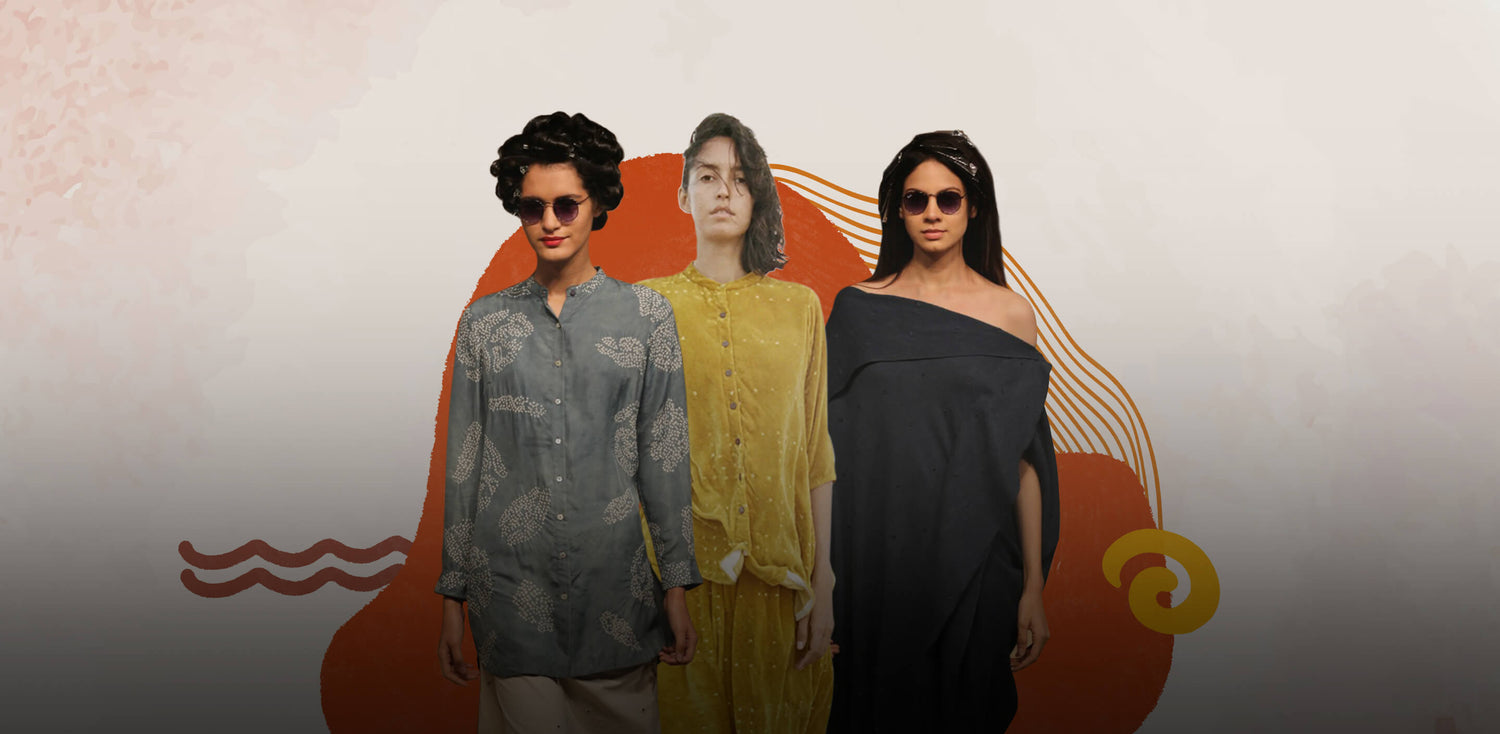A huge trend among millennials is environmentally conscious clothing. Everyone, from famous personalities to ordinary people, is doing all they can to spread the word about sustainable fashion and, as a result, encourage others to be more environmentally aware and purchase clothing that isn't bad for the planet.
Indian designers are attempting to bring much-needed change to the fashion business by focusing on sustainability and reducing waste.
People often ask, name that brand which deal with 100% cotton fabric? Or Name the brand that manufactures sustainable fashion?
Here we have compiled a list of the top 7 sustainable fashion companies that are based in India.
Mix Mitti
Mix Mitti, a young accessories firm, is the newest addition to the growing number of slow fashion, or as we like to call it green fashion brands.This ecologically conscious accessories company was founded by Shivangi Bajpai, a photographer specializing in wildlife subjects. The fact that they provide a portion of their profits to charities that help animals is one of the many reasons why it is worthwhile to do business with them.

Hemp cloth, cotton fabric, and duck fabric are examples of entirely biodegradable fabrics that they use. They are planning to include eco-friendly components into a sufficient number of their products, such as woolen felt and jute, amongst other things.
A pair of faux suede and PU, both of which are materials that are kind to animals and make great substitutes for leather and suede, respectively, can be found inside each of their bags.
No Nasties
The overall objective behind the No Nasties is to provide clothes that are not only comfortable but also timeless and bright. There is a reasonable amount of well-balanced quirkiness that continues to come up as you explore their collection. The colors are usually muted, and the patterns aren't all that conservative.

Apurva Kothari established No Nasties in the Indian state of Goa with the goal of educating farmers and providing consumers with several alternatives. Apurva made the decision to launch a grassroots effort to reform agricultural practices.
No Nasties is a company that manufactures products solely out of cotton that has been cultivated using organic methods.
Doodlage
Doodlage takes scraps of fabric that would are thrown out by large manufacturers, they put them to good use, preventing these materials from being sent to a landfill. They make use of eco-friendly materials such as organic cotton, maize, and banana cloth in the production of their goods.

The company often works together with other similar businesses on a variety of unique initiatives, including one with a non-governmental group known as Goonj. They give the leftover fabric from previous collections to a non-governmental organization (NGO), which uses it to make reusable sanitary napkins for women in rural areas.
Upasana
Upasana is a brand that was founded on the principle that individuals' lives can be improved through the power of fashion. They have designed unique projects and collaborated closely with a wide variety of communities all over the United States. One of these programs, which was developed to help the weaving community in Varanasi, is called Varanasi Weavers.

Another initiative with the goal of assisting organic cotton producers in Madurai is called Kapas. In addition, the company operates a website known as Upasana – The Conscious Fashion Hub. On this platform, designers, environmentalists, social workers, farmers, and students get together to talk about problems in society and come up with solutions.
Brown Boy
Prateek Kayan started his own fashion business, Brown Boy, after leaving his career in finance in New York and moving back to his hometown of Kolkata. After seeing unethical business methods inside the fashion supply chain as well as the significant quantity of garbage that the industry produced, Kayan came to the conclusion that Brown Boy would represent everything that fast fashion did not.

To begin with, the company uses only cotton that has been certified as having been produced via fair trade when creating its goods. This guarantees that the cotton growers will get fair remuneration and that the environment will not be suffocated by pesticides. Particular attention is paid to the health and safety of the staff members, they are provided with social security, medical insurance, and pension funds. In addition, their children are eligible for free public education.
Ethicus
Ethicus is a sustainable fashion brand that was established to address the challenges that are faced by traditional artisans and cotton farmers and to assist these groups in receiving their compensation, which is something that the vast majority of companies that specialize in fast fashion do not accomplish today.

The company not only assesses its performance in terms of increased earnings but also in terms of an improvement in the quality of life of its workers, beginning with the farmers and continuing all the way up to the weavers and designers. They believe in inclusive growth. Every fabric sold by Ethicus comes with a tag that displays the weaver's name, a photo of them, and the number of days it took them to complete the piece.
11:11
11.11 is one of the few brands that are making concerted efforts to promote khadi. This simple cloth is sometimes disregarded because people believe it to be out of style. Nevertheless, because of companies such as 11.11, the notion of "luxurious khadi" is increasingly gaining traction.

The company creates high-fashion items that are entirely handcrafted and organically colored by extracting colors from bark, flowers, and leaves. All of their dyes are 100% non-toxic. They take help of local artists who are good at crafts like block printing and mirror work, and they use native textiles like khadi and Kala cotton, which come from the Kutch region of Gujarat.
We also happen to be a magnet for suggestions, and would love to catch yours….throw us yours on hello@fabriclore.com



Leave a comment
This site is protected by hCaptcha and the hCaptcha Privacy Policy and Terms of Service apply.